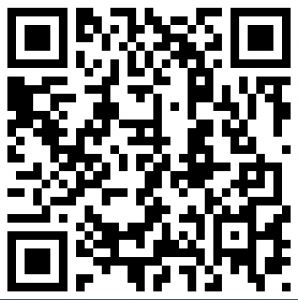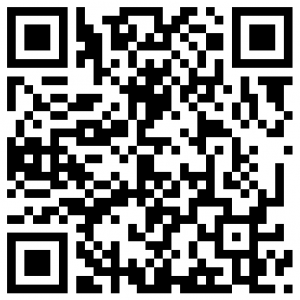First, a definition: What IS a decentralized app or service?
A decentralized app or service, its data, and the user accounts are available from multiple locations. If any one of them go offline, the app or service continues to be functional and distribution of the app or service does not cease, the data does not go away, the user accounts do not die, and no functionality ceases to function.
Let’s review how legacy (centralized) apps and services currently work…
Ordinary, legacy services that you’re probably used to are things like Google Maps, Google GMail, Google Search, Google Drive, Google Docs (seeing a pattern here?), Google’s YouTube. Aside from the obvious fact that all of these are from A SINGLE COMPANY! they’re also centralized. In spite of the fact that Google has a planetary wide system where they distribute their services and storage, they have the following centralized points of failure:
-
They’re all owned by one company.
- Google could, in theory, go out of business. Wait! Stop laughing. Where are you going? Obviously, that’s not likely to happen any time soon, but it’s always a possibility, especially with the possibility that they may be broken up into multiple smaller companies, due to their gigantic control of virtually the entire internet.
- They can (and DO) censor. THOUSANDS of YouTubers have had the following problems, increasing and accelerating in occurrences, frequently for political, not safety reasons:
- Demonetization.
- Shadow banning.
- Removing their videos or channels from “suggested videos”.
- Hiding their videos or channels from search results.
- Marking them as “age restricted”, which hides them from search results where “child safe” restrictions are enabled, such as public libraries and schools.
- Videos deleted.
- Channels deleted.
- Falsification of viewer counts.
- Blocking of voting.
- Blocking of comments.
- Simply not paying the creators what they’re owed.
-
They’re all reliant on the centrally controlled DNS system.
- Though the DNS is a decentralized service, the CONTROL of it is NOT. The CONTROL of the DNS is controlled by an organization called ICANN (Internet Corporation for Assigned Names and Numbers). They’re the ones that can take your domain name away from you. They used to be a U.S. based organization, but in 2016, the U.S. government, in a highly controversial move, transferred control to an international body that is not adherent to your first amendment rights. At the time of this writing (2020/1/4), there are fears that tyrannical governments like Russia or China may start to get partial control of this too. Both of them are already creating their own DNS and many countries block domains from their entire citizenry.
-
They all have access to your PERSONAL data.
- Any data you enter into their apps or websites is viewable by them and stored on their servers. YOUR data is controlled by other people.
-
Your user account is proprietary for THEIR services
- You’ll have to create separate accounts for apps and services on OTHER centralized apps and services not owned by Google.
- Your user account and password are known and stored on these organizations servers. They have access to EVERYTHING you do with their apps, and so do their employees and contractors!
Decentralization solves ALL of the above problems! Here’s how:
-
No centralized DNS.
- Decentralized apps do not rely on the centrally controlled DNS (Dynamic Name System). Once you install and run the app on your local device, most of the functionality happens on your own device. In cases where data needs to be shared, it’s either done so directly from your device to your friend’s device, if you’re having a private conversation, or it’s distributed to a decentralized, public data system like IPFS (InterPlanetary File System).
-
Decentralized account management:
- Instead of creating a user account on a centralized web site for each and every website you visit, you create ONE account. And you do this on your own device. And you do not publish it (unless you want to). This is how cryptocurrencies work. You create your “wallet” using software running on your own computer. It’s essentially a very large and random number, run through a cryptographic algorithm that generates TWO keys: One private (that you hide from everyone) and on public (that you can share with the world). These keys work in unison. If you want to prove to anyone that you created content, you encrypt it with your private key. Anyone with your public key can decrypt it. Technically, that’s not what we call “encryption”. It’s “digitally signing”. If something can be decrypted using your public key, it’s proof that it was encrypted (or signed) with your private key, meaning only YOU. If someone wants to send you something private, they’ll encrypt it with your public key. It can ONLY be decrypted with YOUR private key. This key combination is your “account” and you can use that on any decentralized app that uses that particular technology. You can also create multiple accounts, if you like.
- You create your accounts on your own device.
- You use the same account everywhere (if you want).
- You can create as many accounts as you like.
- No one, but YOU has control over your accounts. No one can delete them.
- Instead of creating a user account on a centralized web site for each and every website you visit, you create ONE account. And you do this on your own device. And you do not publish it (unless you want to). This is how cryptocurrencies work. You create your “wallet” using software running on your own computer. It’s essentially a very large and random number, run through a cryptographic algorithm that generates TWO keys: One private (that you hide from everyone) and on public (that you can share with the world). These keys work in unison. If you want to prove to anyone that you created content, you encrypt it with your private key. Anyone with your public key can decrypt it. Technically, that’s not what we call “encryption”. It’s “digitally signing”. If something can be decrypted using your public key, it’s proof that it was encrypted (or signed) with your private key, meaning only YOU. If someone wants to send you something private, they’ll encrypt it with your public key. It can ONLY be decrypted with YOUR private key. This key combination is your “account” and you can use that on any decentralized app that uses that particular technology. You can also create multiple accounts, if you like.
-
Decentralized app deployment:
- Apps are made accessible on a network of nodes, rather than a centralized app store. Some examples of decentralized networks are BitTorrent & IPFS. This prevents a single entity (Like the Apple App Store or Google’s Play Store) from deleting them. It also prevents a centralized authority, like ICANN from taking away the public’s access to your content via the DNS.
-
Personal Data & Remote Storage
- While personal data does NOT need to be decentralized, decentralized apps SHOULD handle personal data ONLY locally, on the user’s device, OR, per the user’s intention, encrypt, then store on the user’s choice of cloud storage, preferably a decentralized cloud storage, like SiaCoin or FileCoin, or replicated (after encrypted) across multiple accounts on separate centralized cloud storage services like Amazon S3, Google Drive, DropBox, etc…
-
Monetization
- Content creators should receive payments DIRECTLY from the consumers of their content, usually in the form of cryptocurrency. The app providers need only provide the means for the content creator to accept cryptocurrencies. This is usually done by the content creator registering their cryptocurrency wallet addresses with their content and users being able to tap or click it and then transfer crypto directly to the creator. There should be no middleman involved.
-
Elimination of DDOS
- Distributed Denial Of Services is an attack against a CENTRALIZED web site. For example: Multiple machines send thousands or millions of requests to a website, overwhelming the CENTRALIZED servers, causing them to be unable to respond to legitimate requests, because they can’t tell the difference. If your services or content are decentralized, there’s no central server to attack.
-
Faster Downloads
- When you download content from a decentralized network, you’re not relying on the limited server resources of a single organization or single server anymore. The system finds the closest or fastest nodes to you that have the content and deliver it to you.
-
Global bandwidth
- Decentralized distribution means closer physical transfers. In other words, as a downloaded item gets distributed via the act of downloading, it spreads organically across the internet. Each download is done via the closest neighbor, preventing clogging up the longer path connections, making the rest of the internet faster for everything else too.
Decentralization provides massive benefits for BOTH publishers AND consumers.
-
For Consumers:
- As a consumer, the content you love cannot be taken away from you just because of the politics of the day or the preferences of the owner of an organization.
-
For Publishers/Creators:
- You can’t be censored.
- Twitter, Facebook, & YouTube have gone on a massive censorship craze and in spite of being hauled in front of Congress multiple times and facing backlash from the public, they’re only accelerating their censorship. Decentralization puts an end to that.
- You can’t be demonetized.
- A sinister part of censorship is demonetization. In addition to silencing dissident voices, they’re also cutting off their funding and propping up the distribution of funding of only the voice they approve of. Decentralization puts an end to that.
- You can’t be censored.
Speaking of Decentralized Monetization,
If you like my work, you can contribute directly to me with the following cryptocurrencies:
BitCoin:

LiteCoin:

